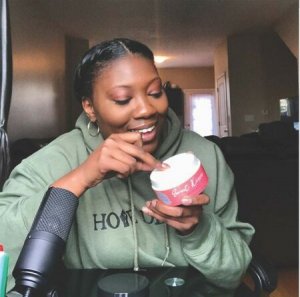Editors Note: LC Johnson leads Forward Cities' on the ground entrepreneurial ecosystem building efforts as the Local Director for Franklin County / Columbus, OH. This article is part of a broader series designed to highlight the journeys of entrepreneurs and the community-based approach of our Community Entrepreneur Accelerators.
“We don’t want another report.”
A refrain I heard again and again from funders and stakeholders at the start of my engagement as Forward Cities’ Local Director of Community Entrepreneurship for Franklin County/Columbus, OH.
Thankfully I knew that the Forward Cities Community Entrepreneurship Accelerator process was much different than what many of our stakeholders were used to and we had a lot more in store than a PDF handout at the end of our engagement. Our process centered entrepreneurs and, while data-informed, our goal was to find solutions for supporting entrepreneurs and building the inclusive entrepreneurial ecosystems by piloting solutions in real time and learning from the experience.
To address barriers that were identified via a strategic mix of surveys and facilitated stakeholder convenings, Forward Cities worked with local stakeholders to develop two “Minimum Viable Solutions” (MVSs). These initiatives were designed to test a set of local interventions informed by national promising practices. In short, the MVSs engage entrepreneurial support organizations (ESOs) to work together to more effectively reach, engage, and serve diverse entrepreneurs, thereby increasing their direct access to the guidance, resources, and individualized support needed to launch, fund and grow their businesses.
Our process for ideating, launching, and evaluating our MVS pilot programs was broken into four main steps.
Step One: Neighborhood Inclusion Compass
Our MVS operated in two LMI areas of Franklin County that were identified by our Innovation Council – a group of diverse, cross sectional leaders convened to provide guidance – early in our process. Forward Cities used a proprietary tool called the Neighborhood Inclusion Compass, which looked at census data in Franklin County and measured things like economic need and income, vulnerability to gentrification, and presence of a commercial corridor. We also did an asset mapping process to document resources being used by current and/or aspiring entrepreneurs in the top eight neighborhoods with the greatest potential to be impacted by a Minimum Viable Solution as identified by the NIC. This research helped us identify two neighborhoods to focus our initial efforts: King Lincoln-Bronzeville and Whitehall.
Step Two: Ecosystem Convening
Difficulty transitioning a business idea and side job, or “side hustle,” to a formal business was among the key barriers to equity in entrepreneurship identified during the Ecosystem Convening. A lack of information on pathways to entrepreneurship and the resources available from entrepreneur support organizations were intermediate roadblocks for the transition. Addressing these barriers was seen as a priority by Franklin County/Columbus entrepreneurs and stakeholders.
In May 2019, we convened a group of entrepreneurs, funders, entrepreneurial support organizations (ESOs), and ecosystem builders who operate within our two chosen neighborhoods of King Lincoln-Bronzeville and Whitehall. It shouldn’t be radical to bring this group together for a facilitated discussion around challenges and solutions, but so often they are working in silos. The facilitated session resulted in rich discussions and ideas for addressing the needs of under-connected entrepreneurs.
Step Three: Working Groups Develop MVS pilot program
Attendees from the Ecosystem Convening were broken into working groups and charged with refining ideas from the convening into actionable pilot programs. Working groups were composed of Innovation Council members, entrepreneurs from our selected neighborhoods, and other ecosystem stakeholders. One of the MVS pilot programs that emerged from these conversations was the Side Hustle to CEO program, a technical assistance program that provided 1-on-1 coaching to part-time entrepreneurs who want to transition into full-time business ownership/operation.
Step Four: Run and Evaluate MVS pilot program
An RFP process helped us identify Aventi Enterprise, a local Black woman-owned business consultancy, who served as the primary executor of the program and Case Manager for program participants.
Coaches sourced via Aventi helped guide Side-Hustlers through the steps necessary to formalize their businesses, complete a business plan and, identify and qualify for the most fitting available funding sources. In addition to the 1-on-1 coaching sessions, the Side Hustle to CEO coach served as an ecosystem ‘concierge,’ connecting entrepreneurs to additional resources in the local ecosystem to support and help them on the path to formalizing and scaling their business.
Rather than duplicating existing efforts, we leveraged relationships and existing resources, and made referrals to a number of organizations offering technical support, funding, and entrepreneurial education, such as:
Referrals were based on the individual needs of each entrepreneur. This collaborative approach ensured the entrepreneurs’ awareness and access to existing resources and services, connectivity to them, and access to a rich base of support to draw from.
One hundred percent of participants completed the program. Upon completion, each business owner received a $1000 cash incentive to be used on business management, accounting software, and/or software as a service (SAAS) products/subscriptions used to support the formalization of their business as prescribed by their coach.
Step Five: Determining What’s Next

Markeisha Johnson Founder of BomBombs
As presented in episode 6 of Forging Forward, the Side Hustle to CEO program had a profound impact on the lives of individual participants like Markeisha of BomBombs. In addition to this individual impact, we evaluated this program with an eye for understanding how community-informed processes like ours can be used to successfully shape service availability and delivery in entrepreneurial ecosystems at the neighborhood level.
With our Side Hustle to CEO program (as is often true in life as well), the journey to create and launch our MVS initiatives has been just as important and impactful as the end result. We look forward to continuing to share these learnings with other cities interested in engaging their communities in similar ways. Interested in learning more? Visit https://forwardcities.org/opportunities/ for more information about how we work with and in communities!